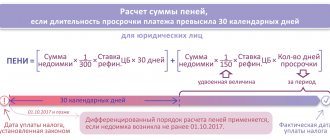About acquittals. Should this type of court decision be included in the “Red Book”?
Not long ago, I allowed myself to speculate about whether the principle of adversarial parties, declared by the criminal procedure law, works in the domestic justice system.
In my opus, I mentioned as one of the reasons why this principle is very lame, the dislike of judges for issuing acquittals.
And today I want to express my opinion about why an acquittal is such a rare occurrence, so rare that PASO (Chamber of Lawyers of the Samara Region) has established an award for lawyers in whose practice such an unprecedented thing has happened.
So let's get started.
Again, I will make a reservation that I do not claim to have the ultimate truth, everything I will write about here is only my own opinion (which I do not impose on anyone), based on personal professional experience and the experience of my many colleagues, prosecutors, judges and lawyers.
To the question: “Why do we have so few acquittals?” There is an official answer given by the Deputy Chairman of the Supreme Court, Vladimir Davydov. He explained that acquittals in Russia are less than 1% due to the fact that 90% of criminal cases are considered by the courts when the defendants admit their guilt.
I probably agree that there is such a reason, however, in my opinion, it is not the only one.
The first and probably the main reason is the legacy of the Soviet of Deputies. Many generations of our compatriots have become accustomed to the essence of the punitive role of Soviet courts. Everyone understood that once in the dock, it would hardly be possible to leave the courthouse without a criminal record (although in fairness it is worth noting that in the USSR there were more acquittals than in modern Russia)).
The remaining reasons that influence this fact have their roots in the first.
Thus, the absolute majority of judges considering criminal cases in the city district courts of the Samara region are former employees of the prosecutor’s office, or investigative and operational bodies, that is, we read “prosecutors,” that is, those people who, before taking the judge’s chair for a number of years, carried out criminal prosecution, and in whom Gleb Zheglov’s principle is written on the subcortex of the brain.
By the way, lawyers are not hired as judges. Everyone knows that there is an unspoken ban on the part of the leadership of the regional court (and some believe that this directive comes from Moscow) on hiring even former lawyers as judges!
In addition, many of the current judges (including the heads of the regional court, and this is important) worked in law enforcement agencies of the Soviet or post-Soviet model.
The next reason is a logical continuation of those previously stated - the historically established perception of representatives of the prosecution as “our own”. In most cities and regions, judges, prosecutors and law enforcement officers belong to the same crowd (lawyers, as a rule, do not belong to it). These people often develop friendly or even friendly relationships. After all, as they say, “there are no former ones.”
Therefore, the judges, knowing that “justification” is a big problem for the investigation and for the prosecutor who approved the indictment, for which if they are not kicked out of service, then they will certainly impose a disciplinary sanction and remove all additional payments to the salary, they try not to let their colleagues down and “ pull out” bad criminal cases.
And finally, the last reason is the allegedly existing direct ban by the leadership of the regional court on the issuance of acquittals.
I cannot say with 100% certainty that such a ban actually exists; some judges I know confirmed its existence, others refuted it; however, if there is no direct ban on acquittals, then in any case the facts of complete acquittal of the defendants are definitely not are welcome.
All the judges I know have confirmed that if you happen to be given an “acquittal,” then get ready for the close attention of the regional court, a bunch of all sorts of meetings at which they will definitely blow your mind, and they may also accuse you of corruption.
Returning to the question I posed in the title, I come to the conclusion that under the current circumstances, an acquittal, as a type of judicial decision, should be included in the “Red Book” because the assumption that acquittals will soon begin to multiply and multiply in our city district courts causes me serious doubts.
Jury trial: questioning of witnesses
After a witness testifies to the prosecutor's questions, the defense attorney has the opportunity to cross-examine that same witness in an attempt to discredit his testimony or impugn its credibility or otherwise undermine his story.
Closing Arguments
Typically, after the prosecution has made its case, the defense will move to dismiss the case because the evidence presented does not prove the defendant's guilt beyond a reasonable doubt. The judge rarely grants this request, but it does happen.
After both sides have presented their side of the story, each side can make a closing argument before the jury. The prosecution tries to strengthen the evidence they presented to the jury, while the defense tries to convince the jury that the evidence is inconsistent and leaves room for reasonable doubt.
Jury trial - debate
After closing arguments by the prosecutor, defense attorneys, and defendants, the jury evaluates the evidence obtained during the trial. The jury will discuss whether the evidence proves beyond a reasonable doubt that the defendant is guilty or not guilty of each charge.
An important part of any criminal jury trial is the instructions the judge gives to the jury before deliberations begin. In these instructions, the judge lays out the ground rules that the jury should use during their deliberations.
The judge will explain what legal principles are involved in the case, describe important legal concepts such as reasonable doubt, and tell the jury what steps they must take to reach their conclusions. Jurors must follow the judge's instructions throughout the deliberation process.
In law
What does the procedural code say about in what cases an acquittal is pronounced? The Criminal Code of the Russian Federation contains sanctions only for those persons who committed a crime. If a person is not guilty of the crime committed, he must be rehabilitated. Let us repeat, the Code of Criminal Procedure states that an acquittal is made by the court in several cases:
- there is no corpus delicti;
- the person is not involved in the crime committed;
- the crime itself is missing;
- The assessors found the man not guilty.
In addition, the acquitted must be fully rehabilitated and restored to all rights. An innocent person is subject to release from custody in the courtroom.
The meaning of the sentence
Procedural meaning of the sentence
.
The verdict is the most important act of justice, in which the procedural function of the court is realized - the function of resolving a criminal case. Only the verdict, unlike other court decisions, is pronounced and proclaimed by the court of first and appellate instances on behalf of the Russian Federation, being one of the manifestations of the sovereignty of the Russian state. It is the passing of a verdict that ends the consideration of the case in the court of first instance and criminal liability is imposed on the person or the possibility of his being brought to justice in this case is excluded. In Art. 50 of the Constitution of the Russian Federation enshrines the right of a convicted person to review a sentence by a higher court, which emphasizes the special importance of the sentence, which resolves issues of guilt and the imposition of criminal punishment. Article 392 of the Code of Criminal Procedure of the Russian Federation speaks of the generally binding nature of the sentence. This property of the sentence means that it is binding on all state and public enterprises, institutions and organizations, officials and citizens and is subject to execution throughout Russia. It is worth paying attention to only one point, which is the following - unlike other acts of law enforcement, a sentence acquires the property of being generally binding only after it enters into legal force. Without the generally binding nature of a sentence, its legal force becomes formal and loses its real meaning. Therefore, if necessary, execution of the sentence is ensured by state coercion in various forms, up to bringing persons guilty of failure to execute a court decision to criminal liability (Article 315 of the Criminal Code of the Russian Federation). A sentence that has entered into legal force has prejudicial significance. All circumstances established by a sentence that has entered into legal force or another court decision that has entered into legal force, adopted in the framework of civil, arbitration or administrative proceedings, are recognized by the court, prosecutor, investigator, inquirer without additional verification (Article 90 of the Code of Criminal Procedure of the Russian Federation). The general meaning of criminal procedural prejudice is that the conclusions contained in the verdict about the facts established by the court are mandatory for courts considering the same circumstances in civil proceedings, and are the basis for exemption from proof (Article 69 of the Code of Criminal Procedure of the Russian Federation, Article 61 of the Code of Civil Procedure of the Russian Federation ). Being the main act of justice in criminal cases on the one hand, it sums up the activities of the investigative bodies and the court of first instance; on the other hand, the verdict as the first step in the judicial resolution of all issues in a criminal case is the basis for the further development of subsequent institutions of judicial protection.
Social significance of the sentence
is as follows:
Firstly, the verdict, summing up the activities of the pre-trial preparation of materials and the court of first instance, acts as the only procedural document by which the defendant can be found guilty of committing a crime with all the ensuing social and legal consequences.
Secondly, the verdict ensures the protection of the rights, freedoms and legitimate interests of participants in criminal proceedings.
Thirdly, the sentence plays the role of a legal means of rehabilitation of persons who were illegally and unreasonably placed in the position of defendants.
Fourthly, the verdict expresses a socio-legal assessment of the danger of the criminal act and the person who committed it.
Fifthly, justice sentences form a proper sense of justice in society and provide an educational and preventive impact on citizens in terms of their law-abiding behavior.
Proclamation of the verdict
After signing the verdict, the court returns to the courtroom and the presiding judge announces the verdict. Everyone present in the courtroom, including the court panel, listens to the verdict while standing.
If the sentence is stated in a language that the defendant does not speak, then after the announcement of the sentence or simultaneously it is translated aloud by an interpreter into a language that the defendant speaks.
If the defendant is sentenced to an exceptional punishment - the death penalty, the presiding judge explains to him the right to apply for pardon.
If only the operative part of the verdict is announced, the court explains to the participants in the trial the procedure for familiarizing themselves with its full text.
No later than five days after the pronouncement of the verdict, a copy of it is handed over to the convicted or acquitted person, his defense attorney and the prosecutor. Within the same period, a copy of the verdict may be served on the victim, civil plaintiff, civil defendant and their representatives upon the request of these persons.
Sentencing procedure
The verdict is decided by the court in the deliberation room. During the sentencing, only judges who are members of the court in this criminal case may be in this room. Judges do not have the right to disclose judgments that took place during the discussion and rendering of the verdict.
The court discusses in the deliberation room the issues to be resolved in the verdict, in the order in which they are given in Art. 299 of the Criminal Procedure Code:
- whether it has been proven that the act of which the defendant is accused took place;
- whether it has been proven that the defendant committed the act;
- whether this act is a crime, and what clause, part, or article of the Criminal Code provides for it;
- whether the defendant is guilty of committing this crime;
- whether the defendant is subject to punishment for the crime he committed;
- whether there are circumstances mitigating or aggravating his punishment;
- what punishment should be imposed on the defendant;
- are there any grounds for passing a sentence without imposing punishment or exemption from punishment;
- what type of correctional institution and regime should be determined for the defendant when assigning him a sentence of imprisonment;
- whether the civil claim can be satisfied, in whose favor and in what amount;
- what to do with property that has been seized to secure a civil claim or possible confiscation;
- how to deal with material evidence;
- to whom and in what amount should procedural costs be imposed;
- whether the court, in cases established by law, should deprive the defendant of a special, military or honorary title, class rank, as well as state awards;
- whether compulsory educational measures can be applied to a minor defendant;
- whether compulsory medical measures can be applied to defendants suffering from chronic alcoholism, drug addiction or mental illness that does not preclude sanity;
- Should the preventive measure against the defendant be canceled or changed?
If the defendant is accused of committing several crimes, then the court resolves the issues specified in paragraphs 1–7 for each crime separately.
If several defendants are accused of committing a crime, the court resolves these issues in relation to each defendant separately, determining the role and degree of his participation in the committed act.
If the case was considered by a collegial panel of the court, the presiding judge raises the above issues for resolution. When resolving each issue, the judge does not have the right to abstain from voting. All issues are resolved by majority vote. The presiding officer is the last to cast his vote.
A judge who voted to acquit the defendant and remained in the minority is given the right to abstain from voting on issues of application of criminal law. If the opinions of the judges on the issues of qualification of the crime or the measure of punishment differ, then the vote cast for acquittal is added to the vote cast for the qualification of the act under the criminal law, providing for a less serious crime, and for the imposition of a less severe punishment.
An exceptional measure of punishment - the death penalty can be imposed on a guilty person only by unanimous decision of all judges.
The judge who has a dissenting opinion on the verdict has the right to express it in writing in the deliberation room. The dissenting opinion is attached to the verdict and is not subject to announcement in the courtroom (Article 301 of the Criminal Procedure Code).



